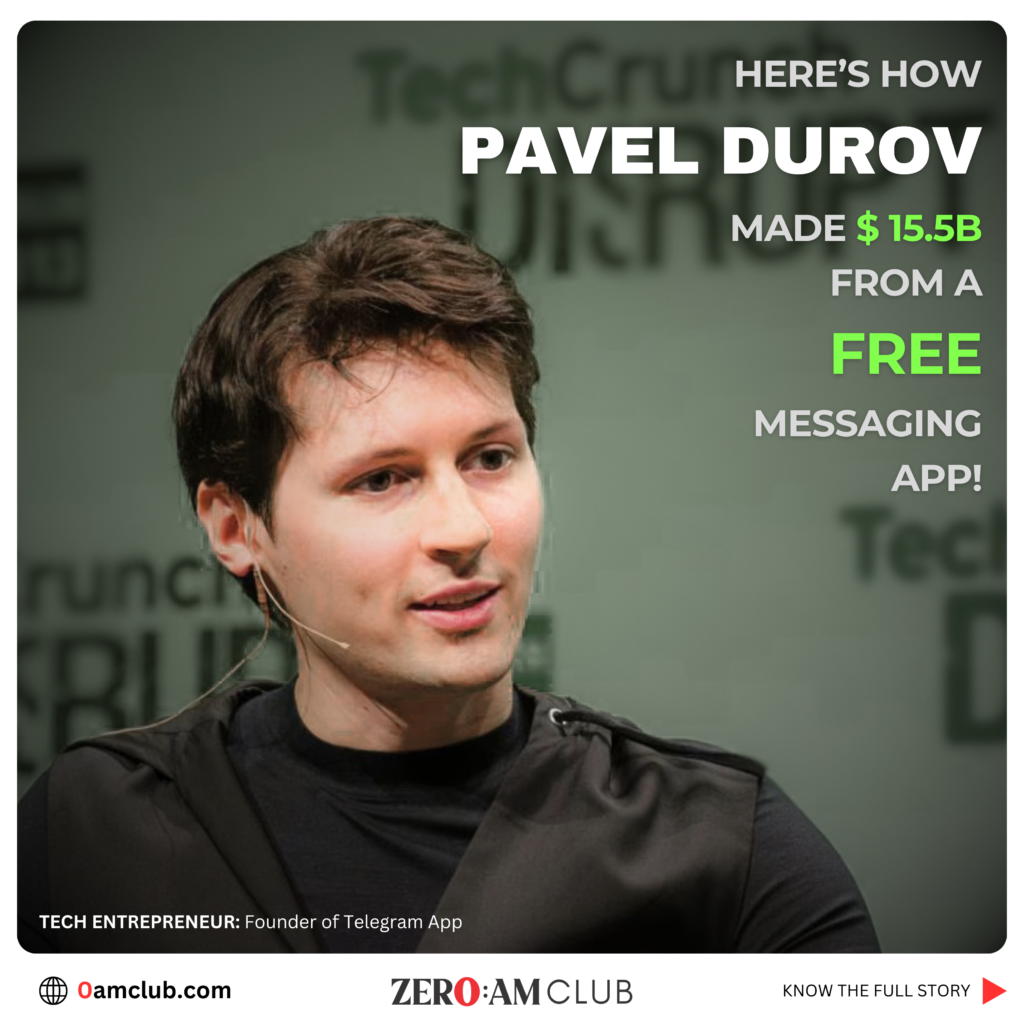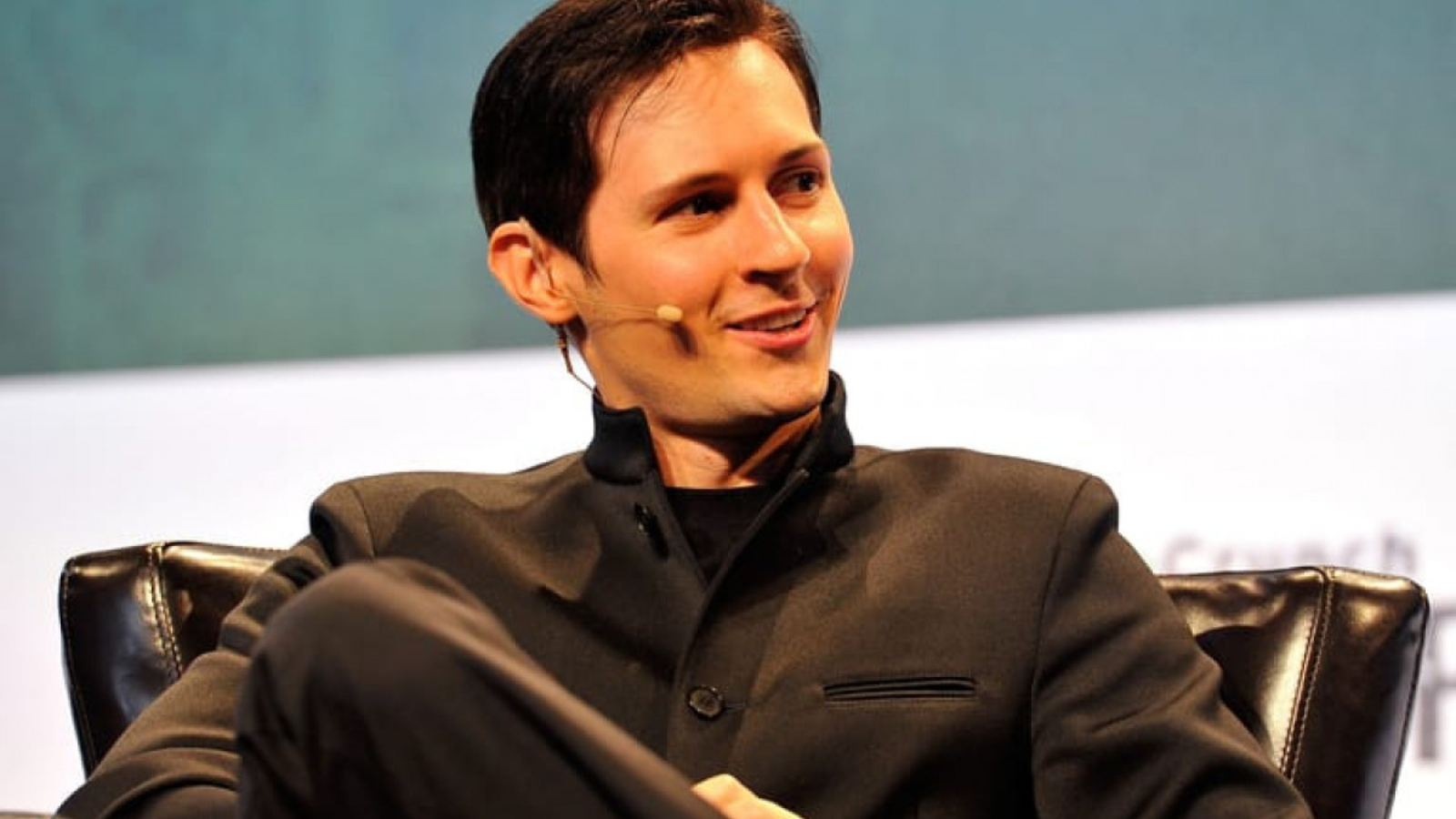
Though Pavel Durov’s name is quite well known, he has become something of a cult figure in the tech-savvy circles of social media and messaging applications. As the founder of Telegram, he has, in this age of paramount importance placed on data security, become a model for digital freedom and privacy. Durov’s climb from the young boy in Russia to billionaire entrepreneur is thus more than just a narrative of success; it’s a narrative of grit and struggle against challenges and a firm stand of principles. In this article, we are going to touch on Durov’s early life, the creation of Telegram, his continuing journey, controversies, interesting stuff about his life and philosophy, and numerous business models that made Telegram an important player within the tech industry.
Early Life and Education
Childhood in Leningrad
Pavel Durov was born on the 10th of October, 1984 in Leningrad (St. Petersburg now) in Russia. He was raised in an intellectual family; his father was a professor of linguistics while his mother was a physician. This environment helped young Pavel grow an affinity of affinity toward academic pursuit and creativity. From early politics, he showed a deep interest in technologies and computers. As a teenager, he already began programming and creating websites.
Academic Pursuits
Durov studied at the multilingual Saint Petersburg State University. His education gave him a full understanding of philology, which later impacted his insightful entrepreneurial ideas. In his university years, he developed a great interest in social networks and online communities. This interest evolved into what would later become known as VKontakte (VK), founded in 2006 with his brother Nikolai Durov.

The Birth of VKontakte
Founding VK
Originally designed to be a social network for students, VK enabled its users to connect with each other, share photos, and communicate easily with friends. Worth noting is that that was when it grabbed the attention of Russian-speaking users and its fame grew as it became popularly dubbed “the Facebook of Russia.” As early as 2010, VK was already beginning to surpass the heights of Facebook with regards to users from within Russia and other post-Soviet states.
Rapid Growth and Success
Durov introduced several new features on VK, ranging from sharing music to uploading videos, as well as mobile functionality. The platform became a cultural youth phenomenon and attracted millions of users. But with great success came great struggles.
Conflict with Government Authorities
Increasing Pressure
VK’s growth made it the center of scrutiny from authorities in Russia: government-sponsored demands that began to worry Durov had included censorship and user privacy. Requirements for the government included access to data regarding users and voter control. Durov did not agree to submit to these demands and, with that, he had opened up a life of clashes with the state.
Departure from VK
In 2014, completing rounds with government and a burst of crises within VK’s management circles, Durov was knocked out of his own project. This was a great turning point in Durov’s career. Durov did not tread east, but instead decided to redirect all his experience into something new—something that paid utmost attention to user privacy above all else.
The Inception of Telegram
Launching Telegram
Pavel Durov launched Telegram with his brother Nikolai in August 2013. This app was a messaging platform designed for speed and security. Telegram soon set itself apart from other messaging applications such as WhatsApp and Facebook Messenger with one of its key features- end-to-end encryption.
Growth Amidst Political Turmoil
Telegram has weathered the storms of revolution within the tumultuous political landscape of different countries where citizens sought confidentiality in organizing protests and sharing information free of government monitoring. The application soon began to be an important communication tool, considered necessary by individuals seeking to hold private conversations away from prying eyes.
Journey Since Inception: Expansion and Challenges
User growth
As of 2020, Telegram had more than 400 million active users around the world. Its growth can be attributable not only to its robust safety features but also to its user-friendly interface along with the great features that include channels to broadcast messages to a larger public and client bots for different tasks.
Government Confrontation
Durov’s insistence on user privacy still antagonizes governments from around the world. In 2018, after Durov firmed up his position, refusing to notify any of the Russian authorities on the encryption keys that would have granted the latter access to the user’s messages, the Russian office attempted to banish Telegram. Consequently, Telegram continued to function in Russia, albeit via VPNs and other circumstantial methods.
Resistance to Censorship
It is Durov’s stance toward censorship that drives the controversy around him; nonetheless, he has been in the good books of many owing to the degree of freedom of expression he allowed. Repeatedly, he said, ‘I believe our freedom of communication should never be restricted by governments.
Controversies Surrounding Pavel Durov
Accusations of Facilitating Illegal Activities
Telegram has faced accusations over the alleged use of its platform by some for illegal acts like drug trafficking and extremist propaganda. Critics say the platform’s strong encryption makes it hard for law enforcement agencies to monitor illegal activities. Durov, while conceding to these concerns, says that the right to privacy is a basic human right that never ought to be compromised.
Content Moderation Challenges
The issue of content moderation has been another bone of contention for Telegram. Nearly all the other social media platforms actively monitor content for hate speech or misinformation; Telegram, on the other hand, allows many scant freedoms as to what its users could post or share. These easier rules have led to accusations that Telegram is a safe haven for extremist groups.
Personal Life Scrutiny
The personal life of Pavel Durov, the tech mogul who came out in pro-privacy fashions while staying a secretive kind of figure himself, has similarly come under the spotlight. He is not known to stick out very much in terms of a public appearance or media attention; however, this has only led to further speculation into his choice of lifestyle.
Mind-Blowing Facts About Pavel Durov
A Digital Nomad Lifestyle
Durov prefers living in an alternative way that reflects his beliefs on freedom and independence. After leaving Russia, he turned into somewhat of a digital nomad who traveled between countries while remotely managing Telegram. He lived in places like Berlin and Dubai.
Libertarian Philosophy
Durov is often described as having libertarian views on governance and technology. He believes strongly in individual freedoms and often speaks out against state control over personal data. His philosophy shapes not only how he runs Telegram but also how he interacts with users on social media platforms.
Philanthropic Efforts
Although being a billionaire tech entrepreneur, Durov has shown an interest in philanthropy with a focus on education and access to technology. He champions programs aimed at enhancing digital literacy for the youth.
A Love for Literature
Durov is an avid reader who dabbles in all genre categories: from classical literature to modern philosophy. The affinity he has for books tends to influence him in thinking about technology’s role in society.
Business Model of Telegram
Free Service with Premium Features
Telegram doesn’t strictly fit the description of freemium, wherein its basic services are freely available and premium features are offered on a payable basis through subscriptions or donations to users who want to help its mission without compromising their privacy.
Monetization Strategies
Recently, Durov hinted he may open discussions surrounding monetization strategies that won’t infringe on user privacy or data security. This may include introducing paid features such as advanced cloud storage options or exclusive content channels, while keeping the core messaging services free.
Commitment to User Privacy
User privacy remains very attractive to Telegram its very statement of intent in the business. In contrast with many others in the tech business, which very much rely on advertising revenue form the collection of user data, Telegram does not sell ads or user information.
Current Life Status: A Visionary Ahead of His Time
As of December 2024, Pavel Durov still leads Telegram in Dubai, which is an excellent city for conducting businesses with technology but warily investigated by on—goings of geopolitical implications on privacy rights. He wishes to expand Telegram’s perimeter while playing chess through the international regulations of the digital communication industry.
A close-mouthed back to business of Durov while encompassed in his own ideal about an ecosystem allowing people to communicate freely with no fear is his message because of the experiences many have endured losing their voice through censorship or surveillance.
Conclusion: A Legacy Built on Freedom
Pavel Durov’s rise from the Leningrad streets to one of the powerful tech entrepreneurs today is nothing but a fairy tale. By standing for privacy rights against the increasing global concern with surveillance, he became a controversial figure as well as an inspirational leader for the freedom folks.
Even as we continue maneuvering through a more challenging digital universe engaged in privacy and security issues, the work of Durov proves that technology is not just a tool for profit- but also empowerment and liberation.
In an age where data breaches are a chronic problem, and private information is an easy playground for multiplicity of corporations and governments alike-Pavel Durov stands taller as a champion of individual rights-a beacon directing us to relatively safe communication methods while innovating without endangering our freedom along the way.



Add a Comment